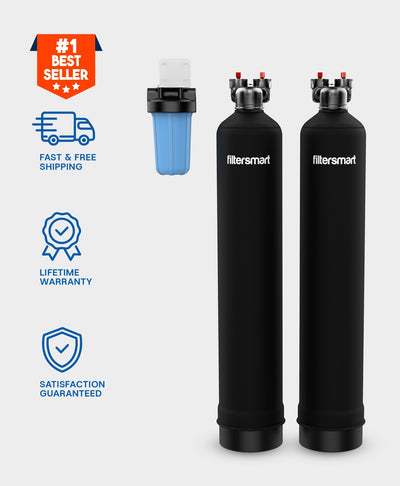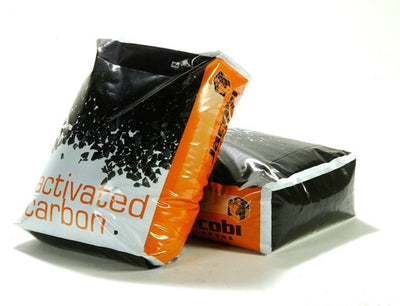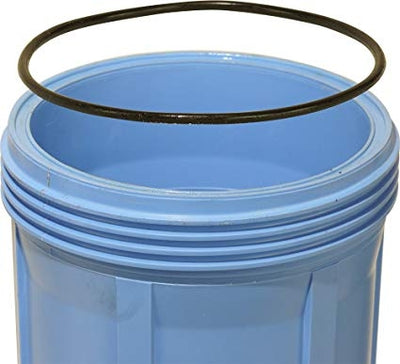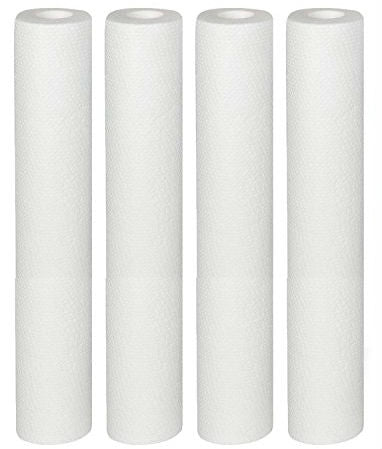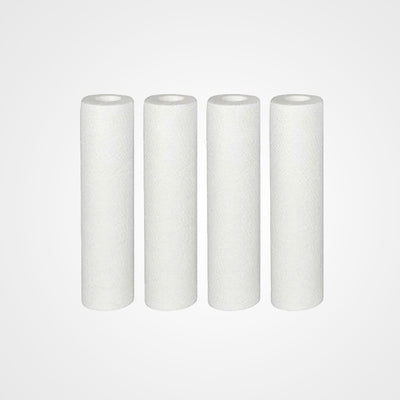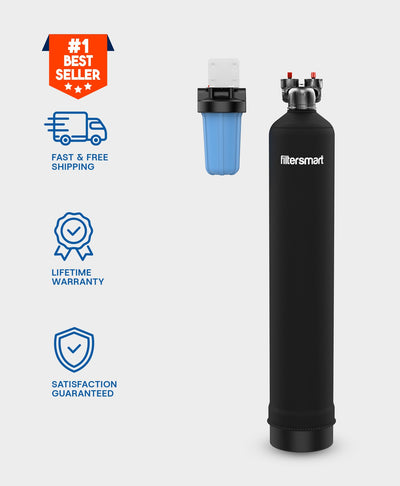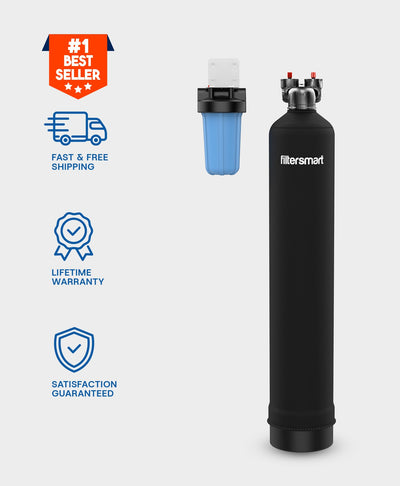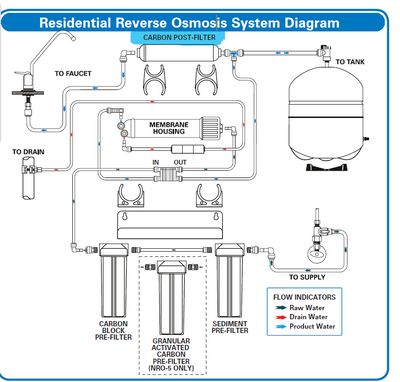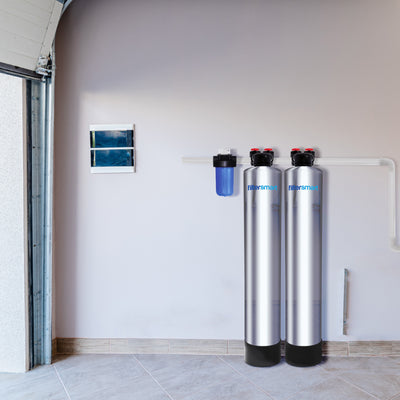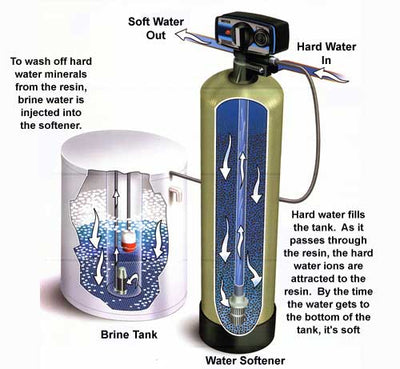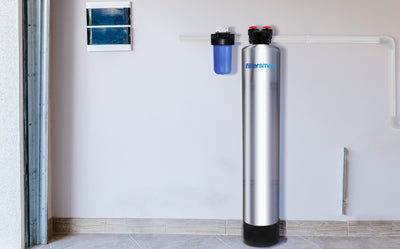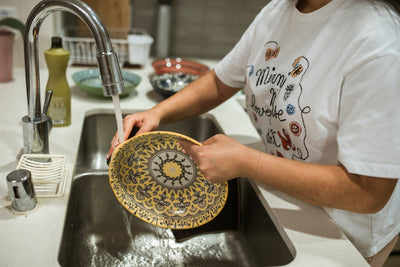What are the top things you should know when trying to pick or choose when buying a water softener?
Well, first and foremost, you need to know if you have hard water. There are plenty of ways of testing whether or not you have hard water problems. Chances are that -- if you’re surfing the internet for water softening blogs -- you already know that you need one.
Regardless, we’ll show you how to make 100% sure that you have hard water, and we’ll show you how to check what other contaminants might be flowing through your tap.
How To Quickly and Easily Test for Hard Water
According to the US Geological Survey, over 85% of the United States suffers from some level of hard water. If you notice the following, there’s a good chance you’re part of the 85%:
-
Filmy hands after washing. If you have hard water, you’re going to have a hard time lathering soap. And, if you have a hard time lathering soap, you’re going to notice it on your hands first.
-
Difficulty cleaning clothes in the washer.
-
Calcium stains on your glasses.
-
Dry skin and hair.
-
Shortened appliance lifespan.
Still, if you have any doubts about whether or not you have soft water and you don’t want to shell out anywhere from $600-2000 for a whole house softening system, there’s an easy way to test for hard water: a testing strip.
You can go on Amazon and buy a hard water testing strip for $20 or less.
If you aren’t interested in buying a testing strip but you want to get an idea on any possible water issues, access yourConsumer Confidence Report from your local water supplier. However, keep in mind that, even if your local water supplier doesn’t report any serious issues, you might still have them. There are a myriad of different ways contaminants can enter the water supply, so a filter and/or softener combo is almost always a good idea (a filter, at least).
How to Choose a Water Softener
So, how do you choose a water softener? First, consider your price point and the size of your house (or, more specifically, your running water requirements). If you have a large family and/or a large house, you’re going to need a reasonably sized water softener. The same thing is true if you have a studio apartment. There’s no reason to buy a bigger softener than you need.
Next, you should learn about the different options on the market.
Water Softener Options
There are different water softener options for different applications.
Ion Exchange
For the longest time, ion exchange water softeners dominated the market. Ion exchange works by binding magnesium and calcium to a resin and then rinsing (regenerating) that resin with salt. Local municipalities are banning them because they generate a lot of wastewater and use large amounts of resources.
You’ll likely have to buy hundreds of pounds of salt per year with an ion exchange water softener. That’s sodium that you end up ingesting -- a non-negligible amount that will certainly exacerbate any existing heart problems. For residential use, they’re falling out of favor with most consumers.
That’s why Filtersmart sells template assisted crystallization softeners (and/or conditioners).
Template Assisted Crystallization
Template assisted crystallization uses catalytic media to alter the nucleation sites of magnesium and calcium, making them less likely to bind to surfaces (and therefore getting rid of any problems caused by hard water).Arizona State University published an independent third party study confirming the efficacy of template assisted crystallization.
Filtersmart’s systems, unlike ion exchange systems, don’t require a discharge line, an electrical source, or regular salt refills. They’re as “set-it-and-forget-it” as you can get, saving you money and saving the environment.
Electromagnetic
Electromagnetic water softeners seem to have the same benefits espoused by template assisted crystallization. At first, they might seem to be a great alternative to ion exchange, particularly because they require even less maintenance. You don’t even have to replace the carbon.
However, there’s close to no scientific basis for electromagnetic water softeners. It’s something we talk aboutin this article. Maybe more research will be released soon that confirms electromagnetic water softening is actually effective for residential water treatment, but for now we can’t recommend them.
Different Requirements for City Water and Well Water
What if you get your water from a well and you can’t access a Consumer Confidence Report for it? In that case, if you want to know for certain that you have hard well water, you’re going to have to buy a testing strip.
Alternatively, in order to discoverallcontaminants in your well water, there are higher-end water testing kits. Here’s how they work: you fill up a couple vials worth of water and send them off to a lab, and then the lab tests your water for you. This might sound costly, but it’s actually surprisingly accessible for the average person. A quick look on Amazon found a testing kit for just $35.
It’s important to know that if you get your water from a well, you almost certainly have hard water problems. According to WellOwner,hard water is the most common problem associated with groundwater. It never hurts to get it tested, though.
So Where Does That Leave Us When Buying a Water Softener?
So, there it is: the top things to know when buying a water softener.
You can either access your Consumer Confidence Report or test for hard water yourself in order to find out if you have any hard water problems.
Also, remember most water softeners only deal with issues as a result of hard water. So if you want to filter the water as well, you may be interested in a combination water filter and softener system to also improve taste.
How do you choose a water softener? First, consider your price point and tap requirements. If you have a large family and a large house, you’re probably going to need a larger water softener.
Finally, template assisted crystallization is our preferred method for water softening for residential use. Ion exchange softeners are being banned in certain parts of the country because they generate wastewater. They’re generally poor for the environment (and your wallet) -- and they even require more maintenance.







